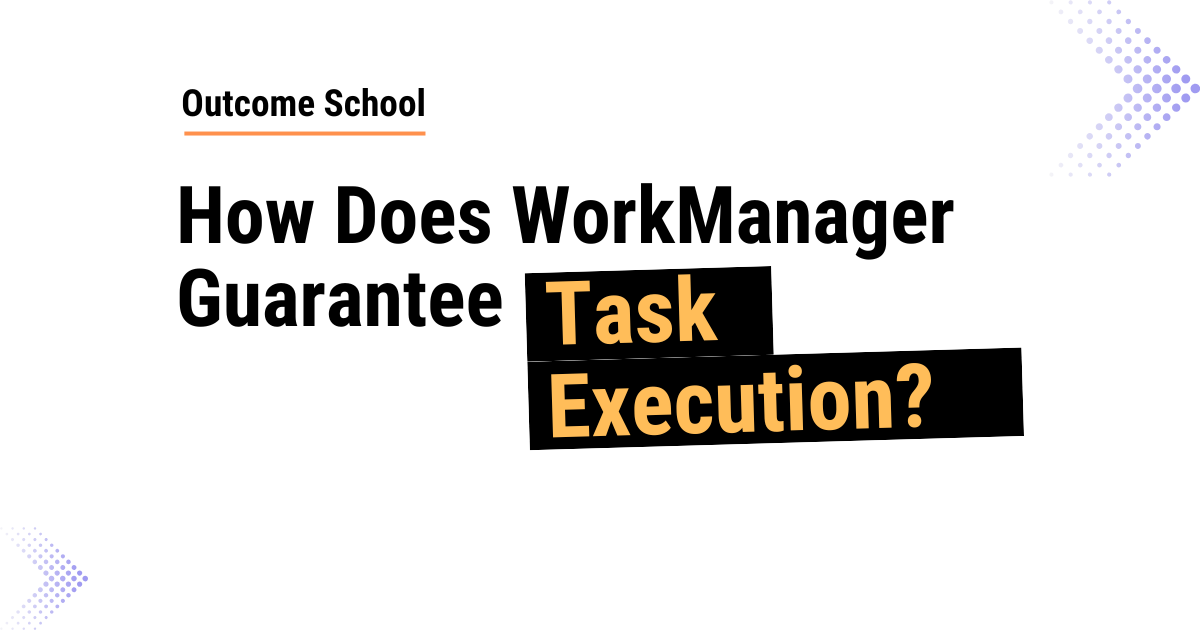How Does WorkManager Guarantee Task Execution?
Reliable Background Task Execution in Android
Let’s understand how WorkManager guarantees task execution in Android.
Persistence
It stores work requests in an internal SQLite database that survives app termination or device restarts.
System Job Scheduler Integration
WorkManager delegates to platform-specific job scheduling APIs (JobScheduler on newer Android versions, AlarmManager + BroadcastReceiver on older ones).
Automatic Rescheduling
After device restart, WorkManager automatically re-registers pending tasks with the system.
Constraints Management
It tracks the conditions you've specified (like network availability) and only executes when those conditions are met.
Batching and Optimization
The system may batch similar work requests together to optimize battery usage.
Exponential Backoff
If a task fails, WorkManager automatically retries with increasing delays.
Final Note
WorkManager isn't a guarantee of immediate execution but rather a promise that your work will eventually run when the system determines it's appropriate, balancing battery optimization with your specified requirements.
Frequently Asked Question in Android Interview: What is the minimum repeat interval allowed when scheduling a PeriodicWorkRequest using WorkManager in Android?
Answer: In WorkManager, when you schedule a PeriodicWorkRequest to run repeatedly, the minimum interval between two executions must be 15 minutes. You cannot set a repeat interval shorter than this due to system-level battery optimizations.
Prepare for your Next Android Interview: Android Interview Questions and Answers
That’s it for now.
Thanks
Amit Shekhar
Founder, Outcome School


